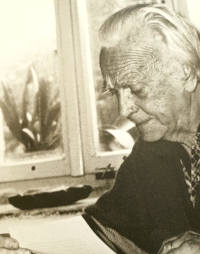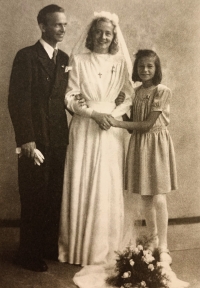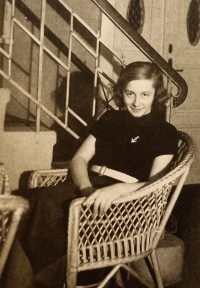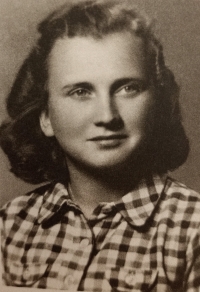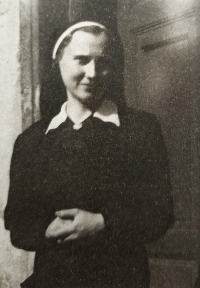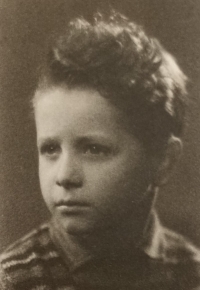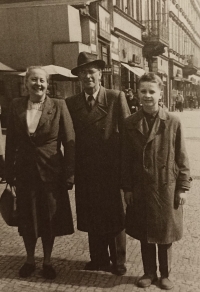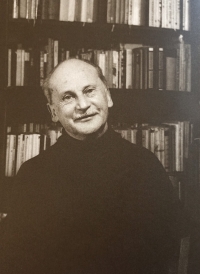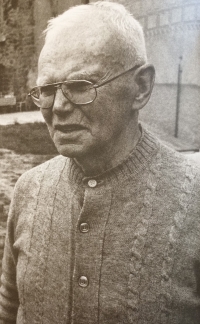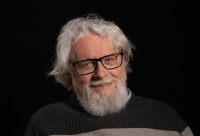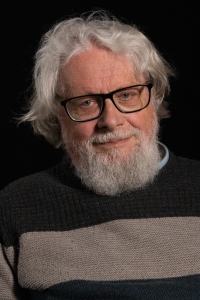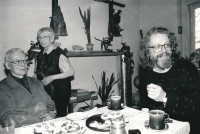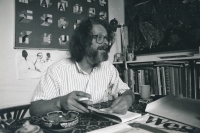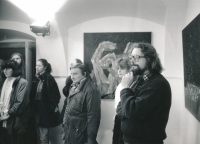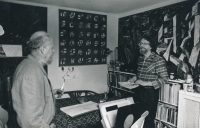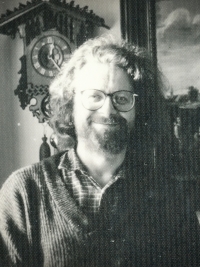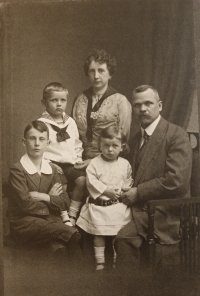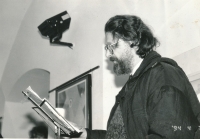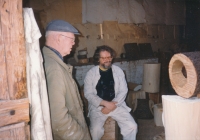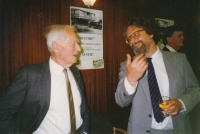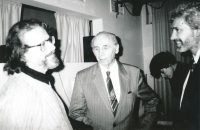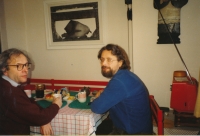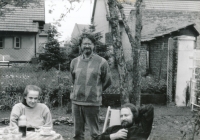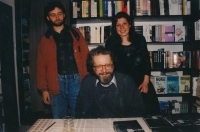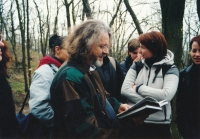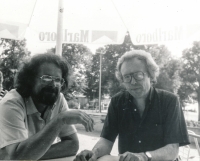I was as free during the normalization as I am today

Download image
Václav Vokolek was born on 1 January 1947 in Děčín to parents Vladimír and Věra as their only son. After the communist coup, the communists nationalized the family printing house in Pardubice. As a result, his grandfather died. Witness’s father, writer Vladimír Vokolek, refused to join the Czechoslovak Writers’ Union, was not allowed to publish any of his books and began teaching at a primary school. Květa Vokolková, the sister of the witness´ father, who was a nun, was imprisoned by the communists for subverting the republic. His uncles Vlastimil and Vojmír took refuge in their closed inner world of art and worked on the fringes, without being published, or publishing just in samizdat, just like the witness´ father Vladimír. Václav Vokolek was not allowed to study at the grammar school because of his background and graduated from the secondary technical school of construction. In the 1960s he was admitted to the Faculty of Education, but left his studies soon. Thanks to the professional influence of his uncle Vojmír, he had wished to become a painter since childhood. However, the official teaching at the Academy of Fine Arts did not comply at all with his idea of modern art. From 1967 he worked as a caretaker of the chateau in Nelahozeves, where he had space for his own work. From 1967 he worked as a caretaker of the monastery in Osek. Here he met the last Greek Catholic bishop who had been interned there, and in nearby Litvínov he made the crucial friendship with the writer Josef Jedlička. At the beginning of normalization, he witnessed personal retaliations, which were given free rein by the consolidated communist power during the pparty purges. In 1971 he decided to devote himself to wood restoration, which allowed him to work freely and independently. Personal inner freedom became his highest value. From the same year he began to write and create books as graphic scores and visual texts. He concentrated on work in the borderland between fine art and literature. He exhibited his work at unofficial exhibitions throughout the Bohemia and abroad. In the 1980s, he often travelled to Poland, which he grew fond of thanks to the atmosphere around Solidarity. He became friends with several leading figures of the movement. After the Velvet Revolution, he began to devote himself even more to teaching, he worked as an editor of several magazines, published his poems and essays, co-founded the publishing house Triáda and published dozens of books. At the time of the recording (2022) he was living and still working in Milovice.
